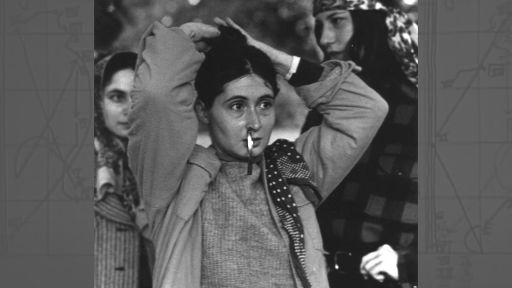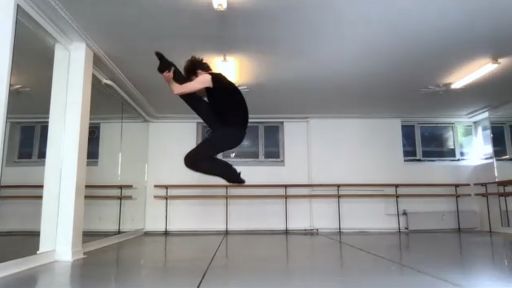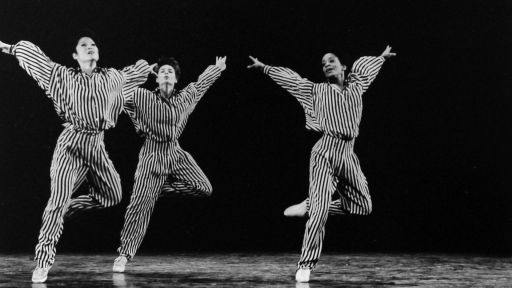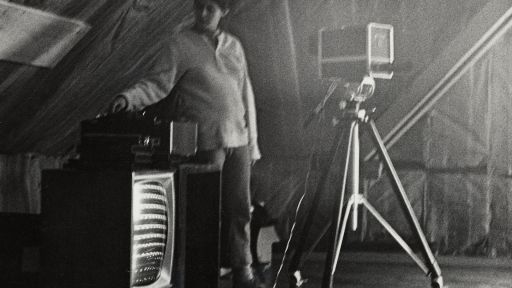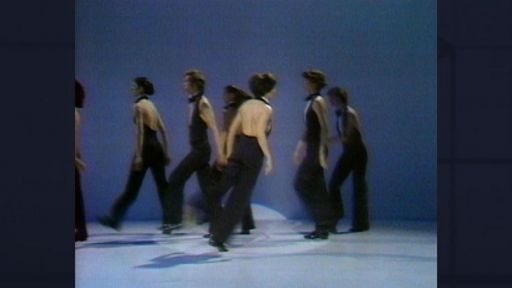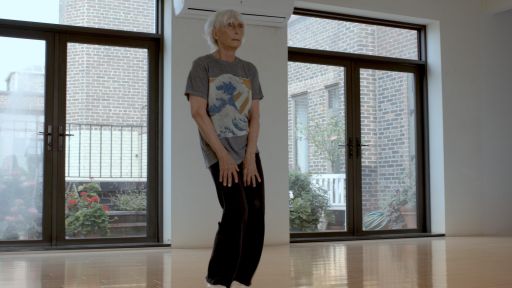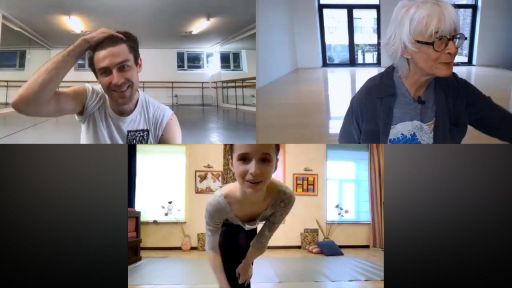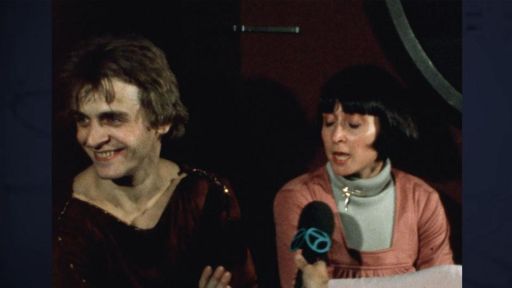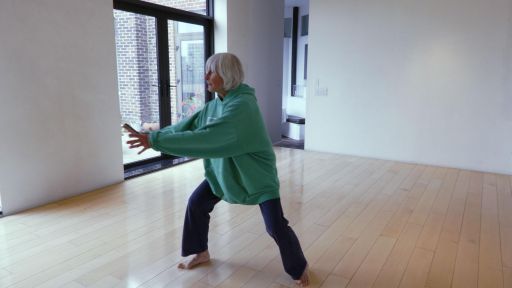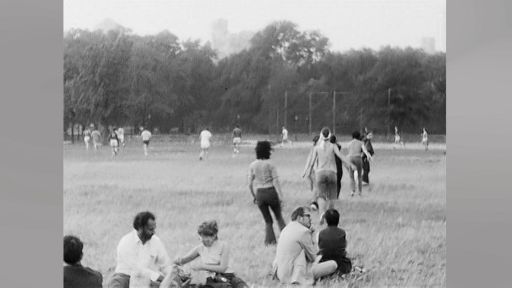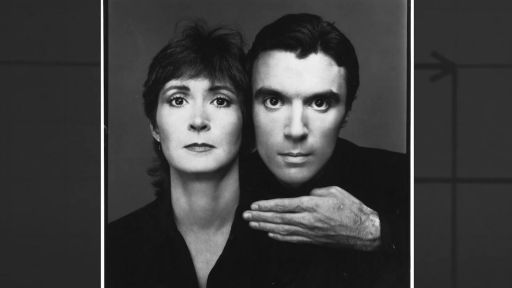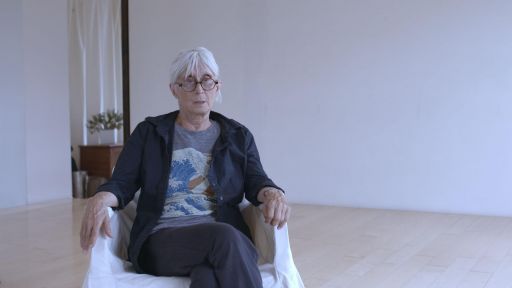PRODUCTION CREDITS
Twyla Moves is a production of Stick Figure Entertainment in association with American Masters Pictures. Steven Cantor is director. Jamie Schutz is producer. Michael Kantor is executive producer of American Masters.
American Masters Pictures
Founded in 2016 by executive producer Michael Kantor, American Masters Pictures is WNET’s theatrical imprint for documentaries co-produced by American Masters, the award-winning biography series that celebrates our arts and culture. American Masters Pictures partners with filmmakers, distributors and sales agents on non-broadcast releases including film festivals, theatrical, online, DVD, VOD and OTT, with PBS as the exclusive U.S. broadcaster of all films as part of the American Masters series. Films include Miles Davis: Birth of the Cool, N. Scott Momaday: Words from a Bear, Toni Morrison: The Pieces I Am, Sammy Davis, Jr.: I’ve Gotta Be Me, Bombshell: The Hedy Lamarr Story, Itzhak, Norman Lear: Just Another Version of You, Maya Angelou: And Still I Rise and Garry Winogrand: All Things are Photographable. Since 1986, American Masters has set the standard for documentary film profiles, accruing widespread critical acclaim: 28 Emmy Awards — including 10 for Outstanding Non-Fiction Series and five for Outstanding Non-Fiction Special — 14 Peabodys, an Oscar, three Grammys, two Producers Guild Awards and many other honors. The series is a production of THIRTEEN PRODUCTIONS LLC for WNET.
About The WNET Group
The WNET Group creates inspiring media content and meaningful experiences for diverse audiences nationwide. It is the community-supported home of New York’s THIRTEEN – America’s flagship PBS station – WLIW21, THIRTEEN PBSKids, WLIW World and Create; NJ PBS, New Jersey’s statewide public television network; Long Island’s only NPR station WLIW-FM; ALL ARTS, the arts and culture media provider; newsroom NJ Spotlight News; and FAST channel PBS Nature. Through these channels and streaming platforms, The WNET Group brings arts, culture, education, news, documentary, entertainment and DIY programming to more than five million viewers each month. The WNET Group’s award-winning productions include signature PBS series Nature, Great Performances, American Masters and Amanpour and Company and trusted local news programs MetroFocus and NJ Spotlight News with Briana Vannozzi. Inspiring curiosity and nurturing dreams, The WNET Group’s award-winning Kids’ Media and Education team produces the PBS KIDS series Cyberchase, interactive Mission US history games, and resources for families, teachers and caregivers. A leading nonprofit public media producer for more than 60 years, The WNET Group presents and distributes content that fosters lifelong learning, including multiplatform initiatives addressing poverty, jobs, economic opportunity, social justice, understanding and the environment. Through Passport, station members can stream new and archival programming anytime, anywhere. The WNET Group represents the best in public media. Join us.
About Stick Figure Entertainment
Founded by award-winning filmmaker Steven Cantor and led by award-winning producer Jamie Schutz, Stick Figure has produced over 400+ hours of film and television for more than 40 networks and studios such as HBO, SHOWTIME, FOX, ESPN, IFC, E!, VH1, TWC, BBC, A&E, and National Geographic. Stick Figure’s accolades include an Oscar nomination, multiple Emmy awards, and nominations for Best Documentary and Series, Special Jury Award at Sundance, Audience Award at AFI, Best Feature Film at the LA Independent Film Festival, and official selections at Sundance Film Festival (nine films), TIFF, Berlin, Telluride, Tribeca, Venice, and more. Most recently, Stick Figure debuted the YouTube series STAY HOME WITH: YUNGBLUD, following the British rockstar as he spent a month in quarantine with his band, writing and releasing new music and connecting with fans and family from a distance. Their upcoming film, HOOD RIVER, follows an Oregon soccer team struggling with issues of race and leadership, was made in partnership with Executive Producer Robert Rodriguez. Stick Figure also premiered two films at the 2019 Tribeca Film Festival: WHAT WILL BECOME OF US, about The Westfield Group’s iconic founder Frank Lowy and his incredible journey from a teen escaping WWII to Australian business tycoon; and BETWEEN ME AND MY MIND, which reveals the creative process of Phish’s lead singer, Trey Anastasio. In 2018, Stick Figure released a feature documentary for Hulu, BALLET NOW, that follows NYCB superstar, Tiler Peck, as she curates and stars in a show at LA’s Music Center made in partnership with Paul Allen’s Vulcan Productions and Executive Producer Elisabeth Moss. Stick Figure is currently in production on a PBS American Masters documentary about legendary choreographer TWYLA THARP. Upcoming projects include AMERICAN GIRLS, a coming of age story of Chinese- American teenage girls, directed by Amanda Lipitz and produced in partnership with Reese Witherspoon’s Hello Sunshine; CITIZEN ASHE, about tennis legend and groundbreaking human rights advocate Arthur Ashe, featuring exclusive unreleased archival materials and John Legend as Executive Producer; WHEN CLAUDE GOT SHOT, which delves into one weekend of interconnected gun violence in inner city Milwaukee that affects three strangers forever, with Snoop Dogg as Executive Producer; and multiple documentary series in development ranging from a true crime series with Discovery to a music series with Amazon to several social impact projects.

